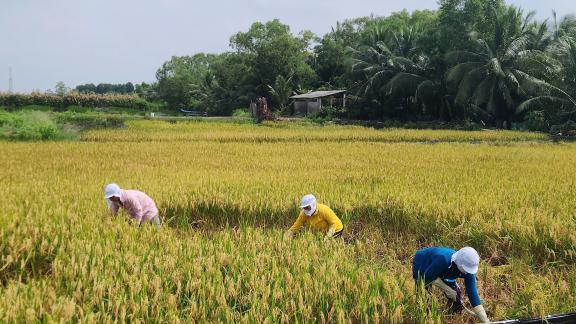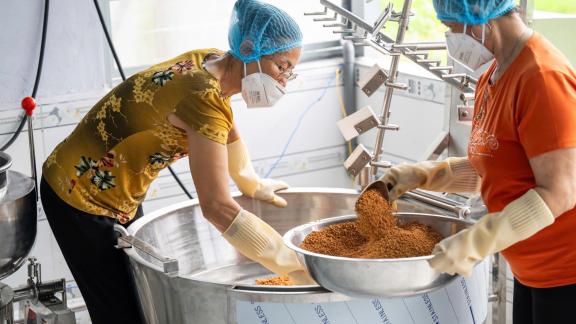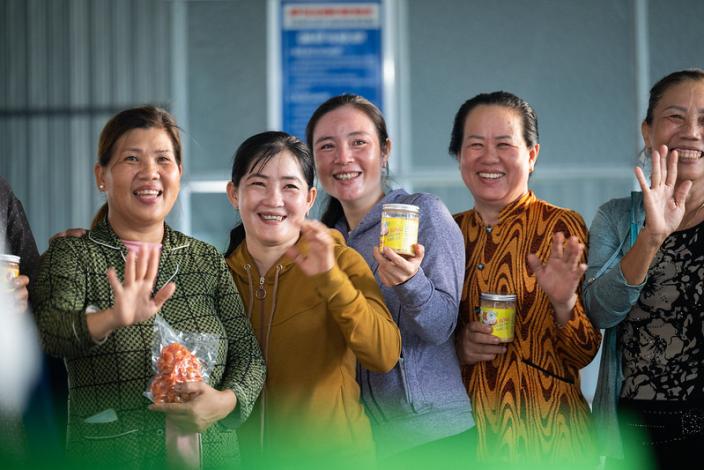In Ca Mau province, many women farmers have long considered occupational hazards an unavoidable part of their work. “Before, I never thought protective gear was important. Getting chemicals on my hands or cutting my feet while working felt normal,” one farmer shared. This recount reflects the challenges faced by women in the agricultural sector and the transformative potential of targeted interventions.
To address these challenges, Oxfam, in collaboration with the Vietnam Farmers' Union, launched the Improved Social Protection and Decent Work for Female Farmers and Workers in the Rice and Shrimp Value Chains in Vietnam project. Spanning from 2022 to 2026, this initiative spans five provinces in the Mekong Delta—An Giang, Ca Mau, Soc Trang, Bac Lieu, and Kien Giang. Its primary goal is to enhance the quality of life, working conditions, and social protection for women farmers and seasonal workers engaged in the region's vital shrimp and rice value chains.

“Before, I never thought protective gear was important. Getting chemicals on my hands or cutting my feet while working felt normal,” a farmer in Ca Mau shared.
A core component of the project is improving occupational safety and health (OSH) practices. Participants receive training on safe farming techniques, the use of protective equipment, and proper management of agricultural inputs. For many women farmers, these lessons have been transformative. "Now I realize how crucial labor safety is," the same farmer remarked. "Through the training, I’ve learned so much—like equipping protective gear, managing shrimp ponds, and handling packaging properly to avoid harm. I feel much more confident!"
In addition to raising awareness about OSH, the project promotes gender equality and empowers women in agriculture through sustainable livelihood models. 390 households (56% female-led) farmers are implementing innovative practices such as shrimp-rice crop rotation, an environmentally friendly model that leverages natural nutrients, minimizes chemical usage, and improves overall productivity. Farmers are also encouraged to utilize agricultural byproducts, such as rice straw and husks, to further promote resource efficiency.
Beyond supporting individual farmers, the project fosters private sector engagement in building sustainable value chains. Businesses are encouraged to establish off-take agreements with farmers, improve working conditions, and implement policies that support women workers. These measures not only enhance brand credibility but also position local agricultural products to meet international standards, opening doors to global markets.
For women farmers in Ca Mau, the project is more than just a support program—it is a pathway to safer, more secure livelihoods.

"In the past, I rarely used gloves, socks, rubber boots, or face mask when cleaning fish and shrimp. I only wear them when necessary. But now, after making improvements, when I go to the fields, I wear rubber boots, face masks, and gloves to ensure food hygiene and safety," said a female farmer in a shrimp farming group in Soc Trang.
